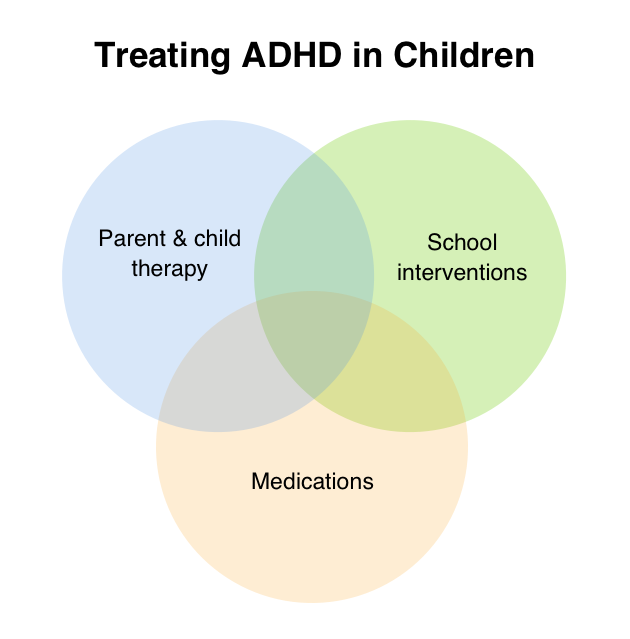Checking Out Effective ADHD Treatment Choices for All Ages
The intricacies of Focus Deficit Hyperactivity Condition (ADHD) existing one-of-a-kind obstacles across different age teams, requiring a detailed exploration of effective therapy options. A combination of behavior therapies, medicinal interventions, and way of life adjustments has revealed guarantee in attending to the varied needs of people with ADHD.
Understanding ADHD and Its Effect
Attention-Deficit/Hyperactivity Problem (ADHD) is a neurodevelopmental problem characterized by relentless patterns of inattention, hyperactivity, and impulsivity that can significantly impact numerous aspects of an individual's life. It typically materializes in youth, although symptoms can persist right into their adult years. The core signs and symptoms of ADHD can disrupt academic performance, hinder social communications, and make complex occupational endeavors.
People with ADHD often fight with preserving focus on tasks, arranging tasks, and following up on instructions, which can bring about scholastic underachievement (Depression Treatment). In social contexts, impulsivity may lead to problems in developing and maintaining partnerships, as individuals may interrupt conversations or make hasty choices without considering effects
Additionally, ADHD can co-occur with other psychological health problems, such as anxiety and depression, better complicating diagnosis and treatment. The variability in sign presentation implies that ADHD can impact people in different ways, demanding a tailored technique to monitoring. Understanding ADHD's multifaceted effect is essential for creating efficient methods that sustain individuals in browsing everyday challenges and achieving their potential. Comprehensive awareness of ADHD's nature and implications prepares for discovering suitable therapy alternatives tailored to every individual's demands.
Behavioral Therapies for ADHD
Many behavior modifications have been created to successfully attend to the difficulties linked with ADHD, focusing on changing details habits and fostering necessary skills. Among the most recognized methods are cognitive-behavioral treatment (CBT), parent training, and social abilities training.
CBT assists individuals identify and transform negative idea patterns and behaviors, advertising a much more positive expectation and boosted self-regulation. This therapy typically includes practical methods for managing impulsivity and boosting company. Parent training programs encourage caregivers by outfitting them with techniques to enhance positive actions and set regular boundaries, which can be specifically valuable for children with ADHD.
Social abilities training is an additional important element, mentor individuals with ADHD how to engage properly with peers - Depression Treatment. This technique often includes role-playing and responses to enhance communication, teamwork, and problem resolution abilities
Integrating these behavior treatments into a detailed therapy plan can significantly improve operating and top quality of life for people with ADHD. Eventually, the performance of these treatments relies on customized methods that think about the special demands of everyone, thus fostering durability and adaptability in life.
Drug Options Available
For several individuals with ADHD, drug can play a considerable role in managing signs and symptoms and improving general performance. Both primary classifications of drugs prescribed for ADHD are stimulants and non-stimulants.
Stimulants, such as methylphenidate and amphetamine-based medications, are one of the most typically used therapies. These medications work by increasing the levels of natural chemicals, particularly dopamine and norepinephrine, in the mind, which helps boost interest and decrease impulsivity and attention deficit disorder. They frequently produce fast outcomes, making them a preferred alternative for many individuals.
:max_bytes(150000):strip_icc()/adhd-treatment-4157278_FINAL-848b0cfc4d0b42a0b66c3d2ca894e9dd.png)
It is important for healthcare suppliers to conduct an extensive analysis to determine one of the most appropriate medication based on specific demands, case history, and possible adverse effects. Regular follow-up and monitoring are additionally important to make certain the effectiveness of the chosen treatment and to make any type of required modifications.
Way Of Life Adjustments to Take Into Consideration
Taking care of ADHD efficiently expands beyond drug, as lifestyle adjustments can considerably enhance total wellness and signs and symptom control. Including organized regimens is vital; consistent timetables aid individuals with ADHD handle their time efficiently and reduce feelings of bewilder.
Regular physical task is an additional important part. Workout not just assists to boost focus however also improves state of mind and minimizes anxiety levels. Activities such as yoga exercise or team sporting activities can be particularly advantageous, advertising both physical fitness and social communication.
Nutrition likewise plays a pivotal function. Depression Treatment. A balanced diet plan rich in omega-3 fatty acids, whole grains, and lean healthy proteins can add to boosted focus and cognitive function. Limiting sugar and refined foods is suggested, as these can intensify hyperactivity and impulsivity
Sleep hygiene is essential for handling ADHD signs and symptoms. Establishing a normal sleep timetable and developing a relaxed atmosphere can boost sleep quality, resulting in much better focus and psychological policy.
Different and Alternative Strategies
Alternate and alternative methods to ADHD treatment supply a diverse variety of choices that enhance conventional techniques. These approaches frequently focus on way of life adjustments, nutritional interventions, and restorative methods that aim to boost total well-being while resolving ADHD signs and symptoms.

Mindfulness and behavioral therapies are likewise obtaining grip as alternative treatments. Practices such as yoga, meditation, and cognitive-behavioral treatment can grow self-regulation and improve attention. These methods sustain emotional resilience, which is especially advantageous for people with ADHD.
Herbal supplements, such as ginkgo biloba and ginseng, are occasionally discovered; nonetheless, it is vital to speak with medical care professionals prior to incorporating these right into therapy plans. While alternative and alternative techniques can supply useful support, they must ideally be utilized combined with evidence-based treatments to accomplish optimum results for managing ADHD across all ages.
Conclusion
In recap, effective ADHD therapy requires an extensive strategy that consists of behavioral treatments, medicine, lifestyle alterations, and alternative techniques. This multifaceted technique underscores the relevance of individualized Behavioral health services treatment in resolving the varied needs of individuals with ADHD across all age groups.